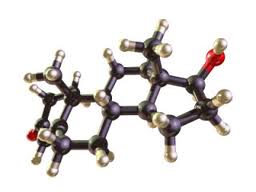
Testosterone might protect the memory of healthy aging women, according to a small open-label pilot study reported at the Endocrine Society 93rd Annual Meeting held in June 2011. Nine postmenopausal women who used a transdermal testosterone spray for about 6 months saw improvements over baseline in verbal learning and memory. A group of matched untreated women saw no change from baseline in their test results. The study was small and further exploration is needed but the idea has merit.
"The results of our study offer a potential therapy, where none currently exists, to slow cognitive decline in women," said lead investigator Sonia Louise Davison, MD, PhD, from the Women's Health Research Program at Monash University in Melbourne, Australia. "Testosterone should be further studied in randomized placebo-controlled trials to determine whether it improves cognitive performance in postmenopausal women," she added.
At a press briefing, Dr. Davison said predictions of the number of people who will develop dementia in the coming years are "pretty worrying." Dementia is set to become an "enormous" and costly public health problem. Women develop dementia at double the rate of men; lower testosterone levels in women might play a role in this sex difference.
Dr. Davison's team explored the effects of testosterone on cognitive performance in 9 nondepressed cognitively normal women. The women were between 47 and 60 years of age (mean age, 55 years) and were receiving stable-dose hormone replacement therapy that was not administered orally. They applied the testosterone spray to the abdomen once daily for 26 weeks. A control group of 30 women provided normative data for comparison.At baseline and 26 weeks, all of study subjects took a computerized cognitive test battery, called CogState, which is capable of detecting small changes in cognitive performance, Dr. Davison explained.
There were no differences between the 2 groups in any parameter at baseline.After 26 weeks, "significant improvements" from baseline were observed in learning (verbal and visual) and memory in the testosterone group. In contrast, there were no significant differences between baseline and 26 weeks in the control group.
Support for the Neuroprotective Effects of Testosterone
Dr. Davison called these results "exciting," and said they provide more evidence that testosterone exerts neuroprotective effects.In men, age-related declines in testosterone increase the risk for Alzheimer's disease, she said. It's been shown that healthy older men and men with mild cognitive impairment and early dementia have demonstrated improvements in cognitive performance, including memory, after testosterone treatment.
"There obviously is some important link between testosterone and cognition that needs to be explored further," Dr. Davison said.
The testosterone spray used in the study is "novel," she noted, "in that it uses a propellant of sunscreen to introduce the testosterone into the skin."
Source: Medscape Medical News for ENDO 2011: The Endocrine Society 93rd Annual Meeting: Abstract P1-314. Presented June 4, 2011.

Comments